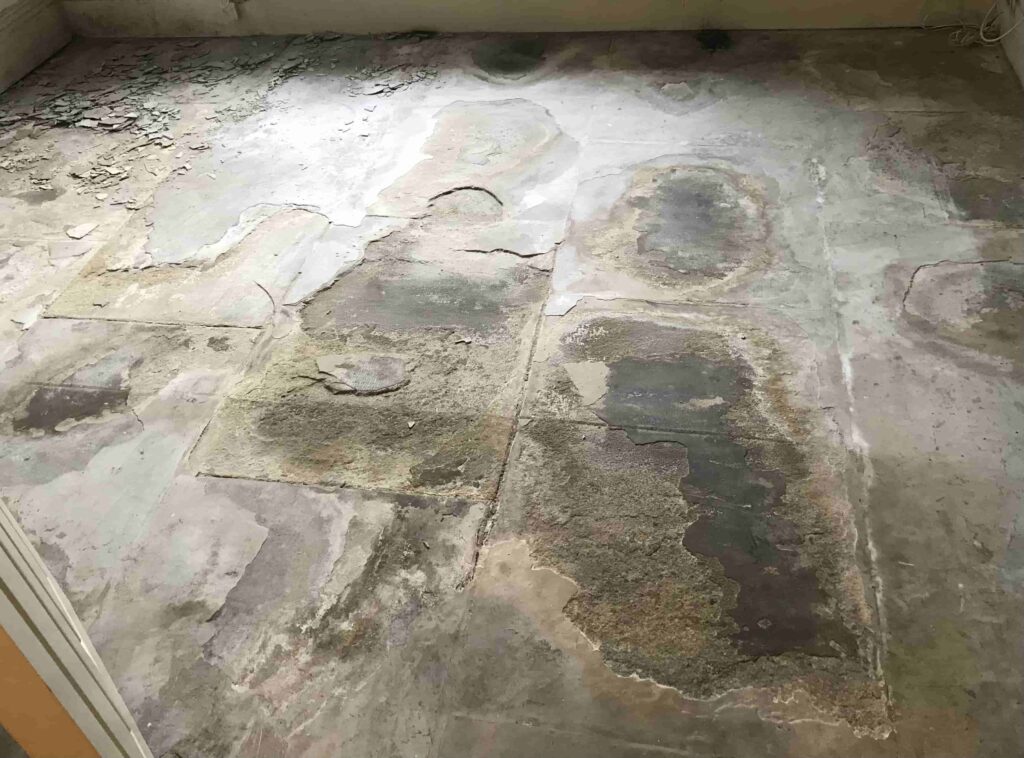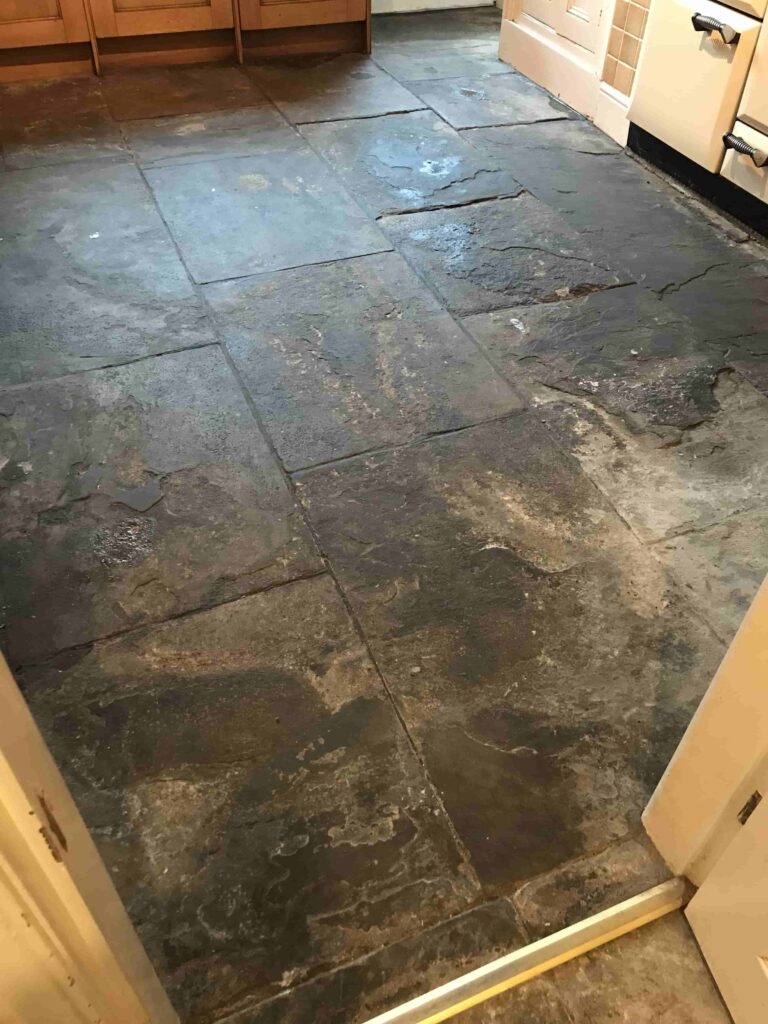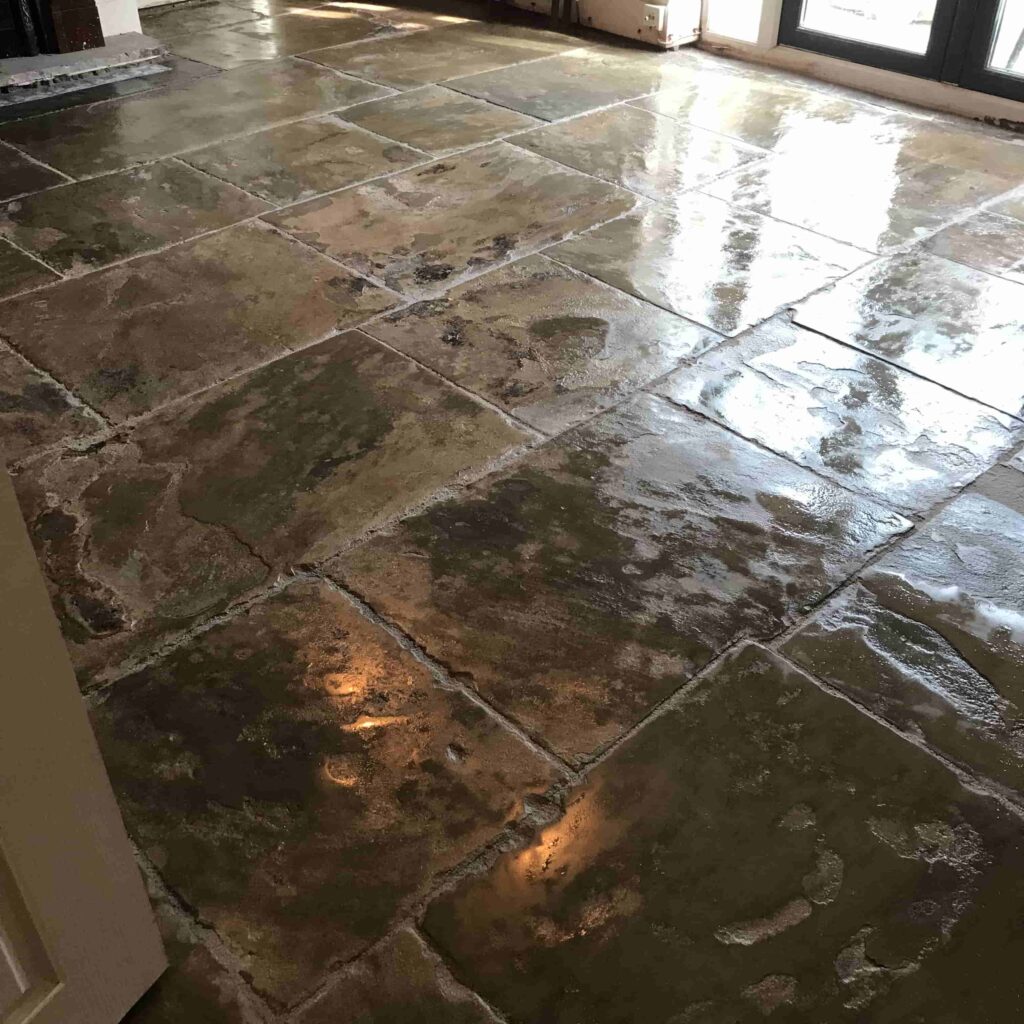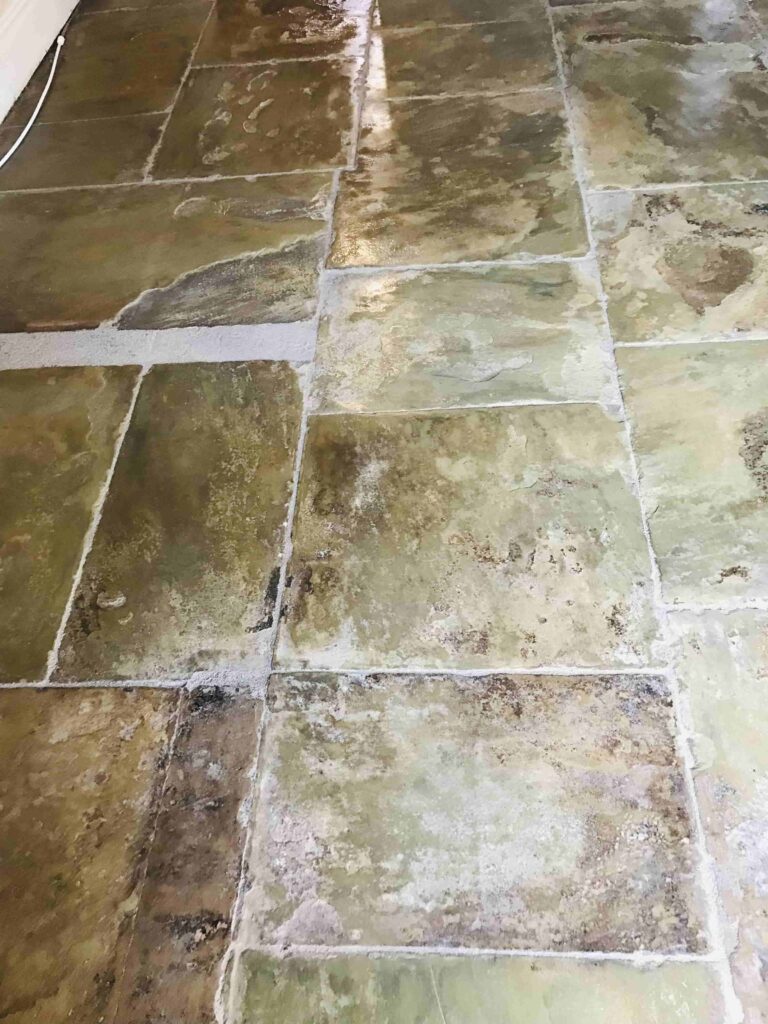A couple from Saddleworth contacted us about their flagstone flooring which was laid throughout the ground floor in their home which was built around 1850. Since buying their home they had decided to take up the carpets and floor coverings to most of the ground floor (approx. 60sqm) to allow the floor to breathe and help with some damp issues in the walls. In addition, it would be in keeping with the house to have its original floor back in use and make a great period feature.

With the stone covered for such a long period the main issue was ingrained dirt and grime as well as the remnants of self-levelling compound and paint. The whole floor also had flaking issues on numerous stones and was very uneven in parts.
After some discussion over the phone around the options of cleaning, stone milling, repointing, and sealing I scheduled a survey. I recommended the floor needed the render removed, stone milled (and possibly repointing) before cleaning and finally sealing. An impregnating sealer which provided a matt, colour-enhancing finish was recommended in view of the damp and animals. In addition, we suggested the use of breathable pointing.
 |
 |
Whilst the work was more involved than initially anticipated, they fully understood the scale of the problems and what was needed and so decided to go ahead.
Cleaning/Repairing a Victorian Tiled Hallway Floor
Work started with the application of 50-Grit Extra Coarse Milling pads which were fitted to a weighted rotary floor machine. The pads were run over each of the rough Yorkshire flagstones to remove the top of the flaking stone and reveal new stone underneath. The process was lubricated with water and Tile Doctor Remove and Go, the water helps keep the dust down and the Tile Doctor Remove and Go helps clean up the stone. We used quite a lot of these pads to clean up the whole floor. The resultant slurry was rinsed away with water and extracted with a wet vacuum.

Once done, the process was then repeated using 100-grit and then 200-grit milling pads to improve the surface of the stone. I must give credit to Russell Taylor from Lancashire Tile Doctor for his experience and assistance on this job, an extra pair of hands were needed given the scale of the work and to speed up work given the owners were still living in the property.
We next used an acid wash Tile Doctor Grout Clean-Up, this is to counter any efflorescence salts that can be generated with floors like this that have no damp proof course. After application it was rinsed off and extracted with the wet vacuum.
After this the pointing was then redone using a modern flexible product.
Sealing a Flagstone Tiled Floor
The floor was then left to dry out for a few days before returning to seal the floor using Tile Doctor Colour Grow which is an impregnating sealer that contains a colour enhancer to bring out the natural colours in the stone. This product is also breathable which is an important consideration for old floors like this.
 |
 |
The project went well, and the floor was completely transformed. My clients were very happy with the work and left the following feedback for us.
 |
 |
For aftercare cleaning I recommend they use Tile Doctor Neutral Tile Cleaner which is a mild yet effective tile cleaner that won’t harm the sealer.
Source: Flagstone Floor Cleaning and Restoration Service in Saddleworth Greater Manchester
Serving Greater Manchester including Saddleworth, Kevin Parry is your local Tile, Stone and Grout maintenance expert. Additionally he is an agent of Tile Doctor, the largest professional Tile, Stone and Grout restorative cleaning network in the UK. Tile Doctor has developed products and techniques to handle a multitude of issues surrounding tile, stone and grout, interior, exterior, domestic or commercial.